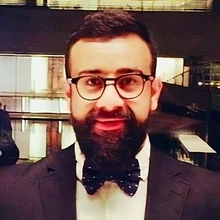Publications
TRIPP/Zangezur Corridor Must Serve both Peace and Connectivity
 By Vasif HUSEYNOV, PhD, Head of Department, AIR Center, Adjunct Lecturer, ADA and Khazar Universities, Baku
By Vasif HUSEYNOV, PhD, Head of Department, AIR Center, Adjunct Lecturer, ADA and Khazar Universities, Baku
The Zangezur Corridor – recently rebranded as the Trump Route for International Peace and Prosperity (TRIPP) — has become one of the most discussed and debated infrastructure projects in Eurasia. Stretching 43 kilometres through Armenia’s Syunik Province, it promises to reconnect mainland Azerbaijan with its Nakhichevan exclave and, through Türkiye, to Europe. It is a project of logistics and trade — a corridor capable of shortening cargo transit from Asia to Europe from 18 days to 12 along the Middle Corridor, reducing dependency on maritime choke points, and creating new opportunities for growth across the South Caucasus. In practice, however, the TRIPP risks becoming a stage for geopolitical contestation unless regional actors ensure that its purpose remains economic, inclusive, and depoliticized. READ MORE
Publications
Russia’s Exclusion from Joint Caspian Drills Shows Regional Shift
 By Fuad SHAHBAZOV, Baku-based independent regional security and defence analyst
By Fuad SHAHBAZOV, Baku-based independent regional security and defence analyst
On October 25, Azerbaijan participated in the Nusret-2025 Invitation Exercise, a joint military drill held in the Gulf of Soros in Türkiye. The exercise aimed to strengthen cooperation between the Turkish Naval Forces and the naval forces of friendly and allied countries, such as Azerbaijan. This is the latest example of Azerbaijan’s partnership with Türkiye in strengthening its naval forces. The Caucasus region, particularly the Caspian littoral, is emerging as a focal point of geopolitical competition amid rising tensions between Russia and the West. The Caspian, often referred to as a “Russian lake” during the Soviet era, has presented new challenges to Russia’s regional dominance since 2022. Until the 2020s, Russia remained the most powerful naval power in the Caspian Sea, despite Kazakhstan, Azerbaijan, and Iran systematically enhancing their naval capabilities over the past three decades. Russia’s full-scale invasion of Ukraine in 2022, as well as regional conflicts and reordering, have exacerbated Moscow’s declining leverage and hegemony in the South Caucasus and Central Asia. READ MORE
Publications
Russia Tests NATO’s Eastern Defences
 By Yunis GURBANOV, PhD, Senior Advisor at the AIR Center, Baku
By Yunis GURBANOV, PhD, Senior Advisor at the AIR Center, Baku
In September, countries in the North Atlantic Treaty Organization (NATO) reported several incidents involving airspace violations. On September 10, 19 drones crossed into Polish territory, prompting Warsaw to call for Article 4 consultations. In a separate episode on September 19, three Russian MiG-31 jets briefly entered Estonian airspace before being intercepted by NATO air policing units. NATO Secretary-General Mark Rutte described these developments as concerning and emphasized that the Alliance remains attentive to safeguarding its members’ security. These incidents reflect an increasingly complex security environment along NATO’s eastern flank. The combination of drone activity and jet overflights highlights the challenges of managing airspace security in an era of hybrid threats. At the same time, the use of unmarked drones, short-duration incursions, and deactivated transponders complicates attribution and leaves room for differing interpretations of intent. READ MORE
Publications
The Acceleration of Putin’s Shadow War
 By Fuad SHAHBAZOV, Baku-based independent regional security and defence analyst
By Fuad SHAHBAZOV, Baku-based independent regional security and defence analyst
Air incursions, military drills, and escalating hybrid warfare hint at a new and alarming level of Russian aggression. Is it just for show?
Russia and Belarus held joint military drills in September. But the biennial exercises were overshadowed by something that may be more ominous — an outbreak of drone and aerial incursions across Poland and the Nordic-Baltic states that illustrate NATO members’ vulnerability to disabling attacks on fragile systems like civil airports. Zapad-2025 is an established Kremlin method of baring its military teeth to its near-neighbours. The official reason for September’s large-scale exercises is to test the ability of the two countries to repel an enemy attack, retake lost territory and secure the borders of what they refer to as their “Union State”. They have often triggered alarm across the NATO alliance, particularly in the Baltic states and Poland, which have a deep historical and recent sensitivity to Kremlin aggression. READ MORE